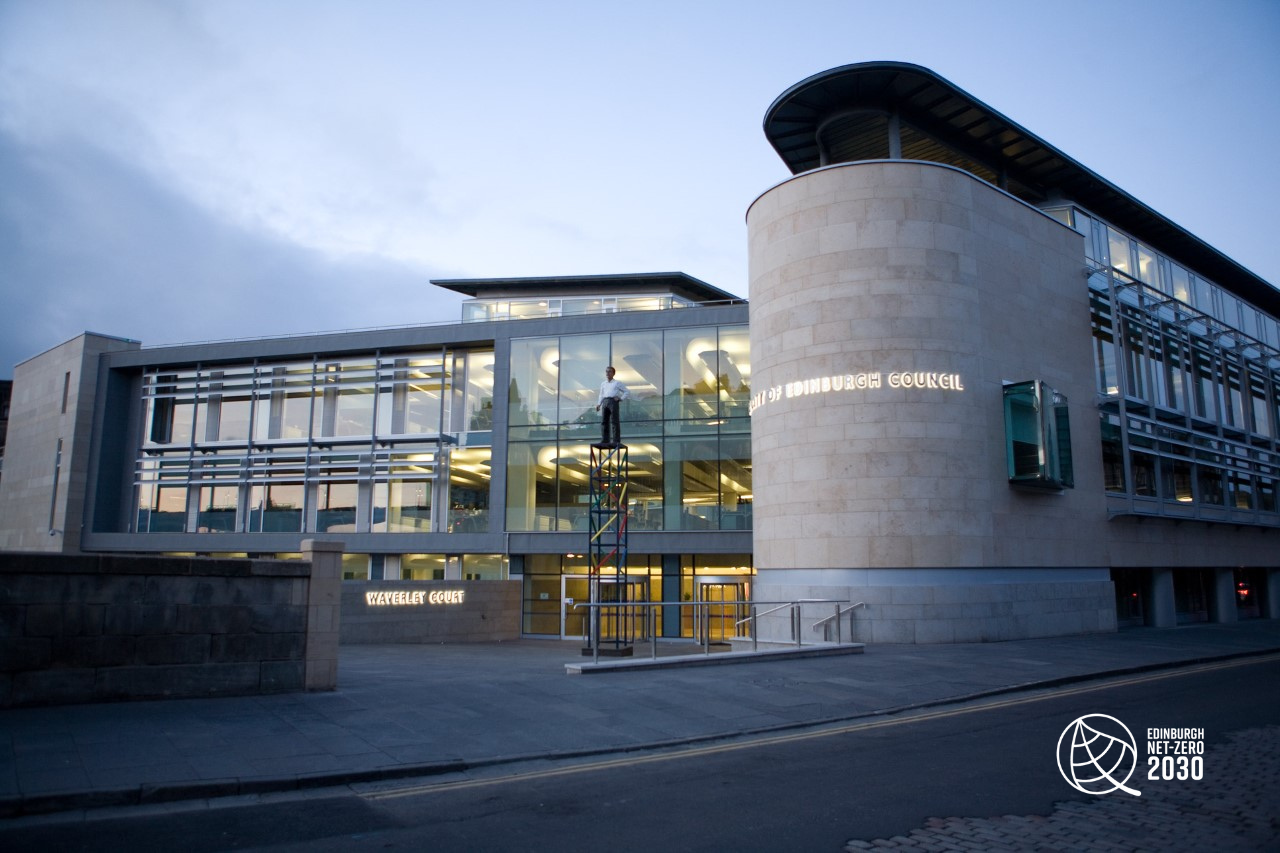Edinburgh outlines journey to net zero emissions in draft plan
Ensuring that all new council operational buildings are constructed to the highest energy criteria is part of a draft plan for the City of Edinburgh Council to become a net zero organisation by 2030.

Councillors will next week consider a draft report outlining some of the first steps the council could take in its own operations, to reduce its greenhouse gas emissions and address climate change.
The draft plan commits the council to:
- Ensuring that all new council operational buildings are constructed to the highest energy criteria and using alternatives to gas boilers for heat as a standard.
- A £0.6m investment in scoping and planning for the retrofit of existing Council buildings so they can meet the highest energy efficiency standards.
- A plan for electrifying all council car and van fleets.
- An immediate improvement to school recycling facilities.
- Investing in the organisations funding capacity and expertise.
- Investing in a programme of staff training to develop climate knowledge and skills.
The draft Council Emissions Reduction Plan follows on from the council signing the Edinburgh Climate Commission’s Climate Compact in December 2020 where it committed to make changes to its operations, transport and buildings to reduce its emissions footprint and support the city’s target of net zero by 2030.
Councillor Adam McVey, City of Edinburgh Council leader, said: “The council’s carbon emissions have fallen by 62% since 2005/06, well above the 42% target we were aiming to hit by 2021. We’ve made particular progress in recent years, with a 51% reduction since 2017/18.
“This ambitious plan aims to build on that success and sets out some of the first steps we’ll need to take across our major emissions sources, to become a net zero organisation by 2030.
“Although the council’s own emissions only account for 3% of Edinburgh’s total emissions, we need to lead by example in our own work to show others what’s possible.
“The journey to net zero emissions will undoubtedly be difficult, but we have a track record of delivery and firm commitment to deliver on our responsivities to future generations.
“By taking action on climate change and committing to a 10-year strategic approach to deliver a net zero organisation, we’ll not only deliver environmental benefits but deliver wider health, economic and welling benefits for the whole city.
“Becoming a more energy efficient council; encouraging sustainable travel choices and reducing the amount of waste we produce will positively impact on all of us and help to unlock opportunities to reduce inequalities as we build back better and greener.”
Depute council leader, Councillor Cammy Day, added: “Edinburgh’s net zero ambition is embedded in a number of our strategies and programmes currently being developed. These will have an impact on both the city and the council’s emissions footprint.
“Our commitment to only build to net zero or Passivhaus standard wherever possible is an important preventative measure. Investing in the knowledge, skills and capacity to decarbonise and retrofit our council estate is an important priority to unlock future plans to deliver change.
“We all have a part to play in reducing citywide greenhouse gas emissions. This report shows the council’s leadership and a commitment to action as well as a culture shift in how the organisation thinks about and plans for climate change.
“According to the most recent emissions footprint calculations for the council, buildings make up 63% of the organisation’s emissions. Other energy consumption is 16%, fleet 9%, waste 8%, business travel 3% and water 1%.
“And, as well as suggesting actions that the council could take to reduce its impact on the environment, the Emissions Reduction Plan report also highlights opportunities to invest in skills and maximise external funding coming to the council and the city.”





















